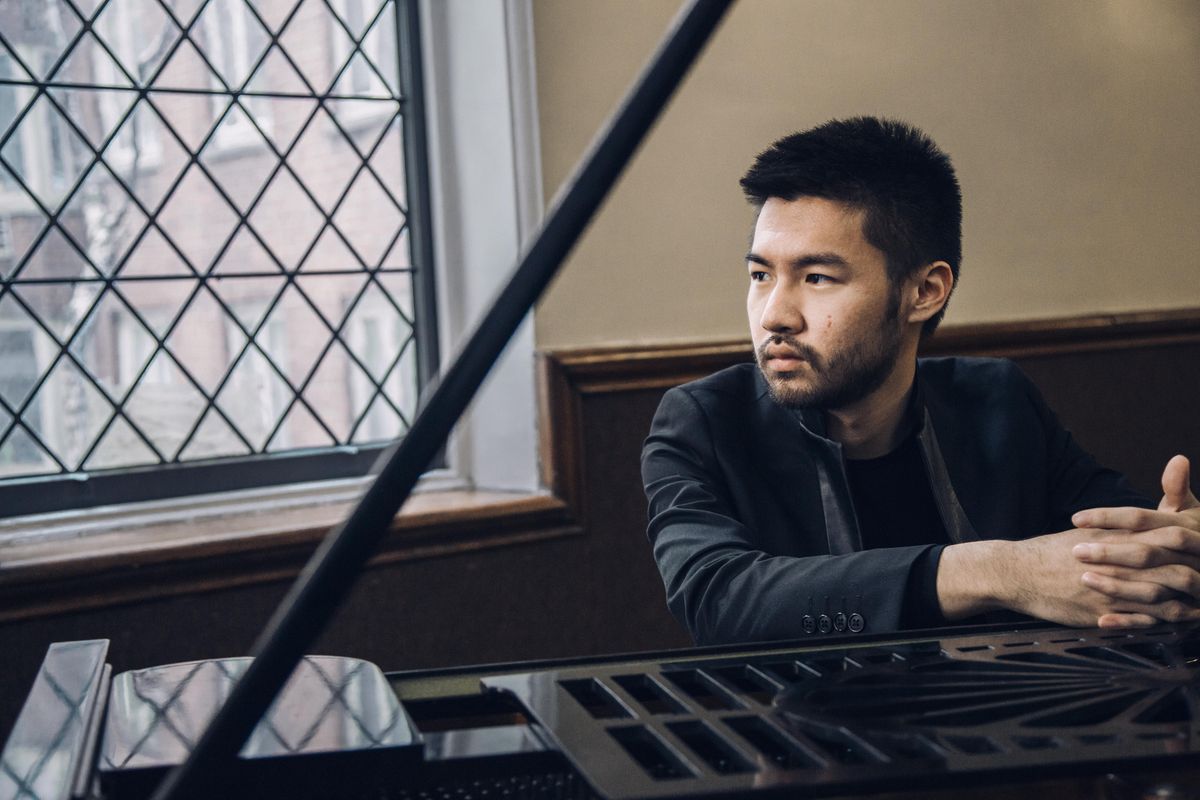Pianist Conrad Tao takes “sensible” route for “Classics” performance

The last time he performed in Spokane, in 2013, pianist Conrad Tao did something, admittedly, a little crazy.
On just a couple weeks notice, he performed all five of Ludwig van Beethoven’s piano concertos across two performances, a feat that was originally scheduled for the piano duo of Sivan Silver and Gil Garburg until Garburg injured his hand.
Luckily, Tao didn’t require too much preparation as he had performed the concertos with the Symphony of the Americas in Fort Lauderdale, Florida, about a month before performing in Spokane.
“I haven’t done it since and I can’t say I’m necessarily super eager to do something like that soon, but I certainly had an exciting time,” Tao said during a recent phone interview.
This time around, he’s doing something much more “sensible,” performing Camille Saint-Saëns’ Piano Concerto No. 2 as part of the Spokane Symphony’s latest Classics concert “Tales of Tragedy” this weekend at the Martin Woldson Theater at the Fox.
Tao calls the Saint-Saëns piece both charming and dramatic.
The first movement, which Tao said is romantic and loving, begins with a solo piano section.
“The piano is the orator in the opening of the piece and holds command over the whole piece for awhile,” he said. “It’s very dramatic. It harkens back to Baroque forms.”
The second and third movements then go further and further into what Tao calls “‘Looney Tunes’ land.”
The second movement is a scherzo, meaning it’s light and playful. It’s while playing the third movement that Tao said he starts to think about “Looney Tunes” composer Carl Stalling.
“It’s a barnstorm of a final movement and it begins full of humor, but it’s a little bit less good-natured, a little bit more rude,” he said. “It has a little bit of an air of destruction about it… There’s always an undercurrent of destruction within a lot of children’s cartoons.”
Tao said he values drama in music and tries to embrace the over-the-top manner in which the Saint-Saëns piece builds over time.
“Tales of Tragedy” will also feature César Franck’s “The Accursed Huntsman,” and “Macbeth” and “Till Eulenspiegel’s Merry Pranks,” both by Richard Strauss. Spokane Symphony music director Eckart Preu will conduct.
Though Tao’s impressive musical feat gained him a lot of attention during his first visit to Spokane, his youth also turned a few heads.
Tao, now 23, was 18 when he performed in Spokane. The Illinois native made his concerto debut at age 8 and has been a working professional since age 12.
He’s not the biggest fan of being referred to as the “new generation” of classical music and said he is often asked variations of the question “How do we reach younger audiences?”
Tao thinks that’s the wrong question to ask because it assumes classical music inherently deserves that audience.
“I would argue that first of all, the presence of an audience or an audience of a certain size does not determine the validity of a work, so we certainly shouldn’t act as though it does,” he said. “And there’s the other thing where I wonder whether or not we’ve actually done any of the real work to make the art form relevant… in the sense of is it expressive in a way that is actually honest about the world today.”
Through his work with symphonies around the world, Tao said he has also seen confusion about what it means to be a large concert music organization in this day and age, which makes musicians and those organizations feel like they have to justify their existence, especially in the U.S., where Tao notes there is not a particularly strong infrastructure for the arts.
All of that aside, Tao said he loves working with young people, though he admits it’s nearly impossible for him to reach every single student in a classical music context unless he is given the opportunity to get to know each student.
“It’s impossible to generalize about young people because young people are especially diverse…” he said. “You can’t reach all young people because you just don’t even know what that would mean.”
Tao doesn’t see himself as a role model, but when he works with young people, he hopes he is able to show them, especially those who don’t yet have an avenue through to express themselves, that what he’s doing is just one option.
He doesn’t try to steer them in a musical direction, rather he encourages them to be curious.
“If I can provide that kernel or a seed that someone can then take and examine on their own and plant in whatever soil they want to, that’s much more important to me,” he said.